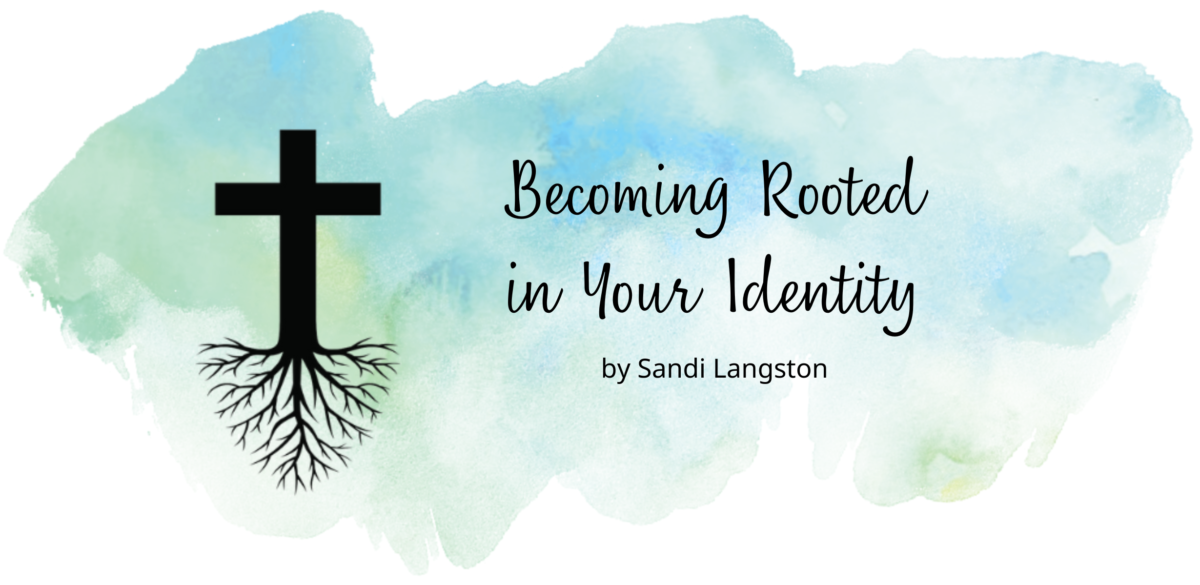The guilty feelings eat away at us from the inside. The mention of certain words makes our hearts pound and our blood curdle. We wish we could turn off the nightly flashbacks and move on. But the guilt remains and we ask ourselves for the thousandth time, how do I forgive myself?
We’ve all done bad things, but some things are harder to forgive. Perhaps we’ve tried, but to no avail. By now we’ve lived with it for so long, we wonder if it’s even possible to forgive ourselves and move on. We’ve gotten used to the harsh voice of self-condemnation and we don’t even like ourselves anymore, but we wish there was another way.
Well… there is, though it may not be quite what you think.
It is possible to forgive yourself no matter what you have done
Before we get to the practical, let’s unpack a little theology around forgiveness:
We would not need forgiveness if we had not done something terrible. The very topic of forgiveness assumes there is something awful we have done that needs to be forgiven. In biblical language, we have sinned. We have gone against God’s ways.
Forgiveness is a gift; it can never be earned. We cannot ever make up for something bad we have done. There’s just no way it is possible.
We can be forgiven because the price for our misdeeds has already been paid. Forgiveness is free, but it is not cheap. The wages of sin is death, but the good news is that Jesus has already paid for our sin by His death.
So… how do we forgive ourselves?
Acknowledge what you have done
We must acknowledge that we have done something terrible – we have sinned and now we must name our sin and confess it as sin. We call a spade a spade, and we admit our need for forgiveness.
Come to God
Because we have gone against God’s ways, we must first be reconciled to God by asking for and receiving His forgiveness. Only once we are in right relationship with God can we be in right relationship with ourselves.
We can take God at His word that He will accept us as we are and that He will forgive us, no matter what we have done. This is true for anyone who repents earnestly.
It takes faith and humility to come to God when we have disobeyed Him, but God longs to be gracious towards you and me (Isaiah 30:18). God reveals His character in the Bible: He is loving, merciful, compassionate, and gracious. If coming to God is difficult for you, or if you find yourself afraid of approaching Him, perhaps you are believing some lies about God.
If you have never acknowledged your need for God before, then now is as good as ever to admit you are a sinner and in need of Jesus Christ to be your Saviour and your Lord.
The meaning of repentance
Repentance or to repent means to change your mind, to change the way you think. We turn away from something (sin and evil) and toward something (God). Specifically, repentance of sin means to stop thinking about sin as something to enjoy, and start to see it as God sees it – and hate it.
Repentance is more than just a change of thinking; it is evident in our change of behaviour and attitudes. It is marked by godly sorrow.
Repentance is uncomfortable and sometimes difficult because we have to humble ourselves. But repentance is also a joy and a gift because it unlocks freedom from guilt and sin.
A simple prayer of repentance goes something like this: “Lord Jesus, I have sinned by (name your sin as specifically as possible). I am sorry and I ask you to forgive me.”
It is good if you have prayed that, but don’t stop there! There is more to receiving forgiveness and forgiving yourself.
Receive God’s forgiveness
“If we confess our sins, [God] is faithful and just and will forgive us our sins and purify us from all unrighteousness.” – 1 John 1:9
We need to accept God’s forgiveness and we do this by faith. His promise to forgive us is based on His unchanging character, which is “faithful and just” (not our own, which can be flimsy and fickle at times). We choose to believe He forgives us.
Not only are we forgiven, but God also purifies us from all unrighteousness. He cleanses us from “everything that is not in conformity to His will in purpose, thought, and action” (Amplified version). He doesn’t just make us as good as new; He actually makes us new!
Take a moment to tell God you receive his forgiveness for your specific sin, and thank Him for forgiving you and cleansing you from it. Thanking God is a great way to receive by faith.
How to forgive yourself
Here’s the catch: that’s all you need to do. You have already humbled yourself and received God’s forgiveness – that is how you forgive yourself.
“But that’s not what I signed up for,” you may protest. And I shall say with compassion, “yes, I know.”
If we think we still need to forgive ourselves after God has forgiven us, then we are adding to the Gospel. How we forgive ourselves is by receiving God’s forgiveness. But keep reading…
If God can and does forgive you, the only thing holding you back from receiving His forgiveness – or some may say from forgiving yourself – is pride (see troubleshooting below). There is nothing too terrible for God to forgive, and there is nothing so amazing we can do to earn forgiveness.
Get God’s perspective
We receive God’s forgiveness by faith, but one thing that can be extremely helpful to receive it is when we hear something from God that seals the deal.
Here are some things God has spoken to real people that has helped them own their forgiveness:
“I’m not finished with you yet.”
“There is no condemnation for those in Christ Jesus” (Romans 8:1).
“Neither do I condemn you. Go now and leave your life of sin” (John 8:11).
I encourage you to ask God how He sees you, and then wait and be attentive to any images or senses you experience. Ask Him what He wants you to know about what you have just confessed.
One lady saw a picture of herself wearing a white dress – a symbol of purity.
Another lady sensed Jesus embrace her and she knew she was fully loved and accepted.
Beware of condemnation from the enemy (see below). Even when God convicts us of sin, He does not shame or berate us.
Walk with your head up high
You will know the difference once you receive God’s forgiveness. Enjoy the freedom and the lightness! Walk with your head up high! Jump for joy! You will no longer feel guilty. You are no longer under the condemnation of the enemy. I’d even guess that you may want to tell someone about it – it is too good to keep to yourself!
Troubleshooting forgiveness
Sometimes we try to receive forgiveness but we run into obstacles. Here are a few common struggles:
Pride
The biggest obstacle to accepting that we are forgiven is pride. We think we have no need to be forgiven (straightforward pride), or we think we are too bad or too unworthy to come to God (inverted pride). Either way, we are focused on ourselves and not on God.
If we think our actions are unforgivable, we are saying that Jesus’ death was not enough to pay for our sin. We act as though we have to make up for the deficit by beating ourselves up or by doing something good to counter our sin. It doesn’t work like that. We come to God with our sin, and we exchange it for His righteousness. Humbling, but true.
Those who are truly humble come as they are – messed up and transparent and acknowledging their need for mercy and forgiveness. They welcome God’s gift of forgiveness and love Him all the more for it.
Condemnation
We are supposed to hate sin but when we realise that we are hating ourselves, something is awry. This article helps us discern the difference between conviction and condemnation.
Repeated sinning
It can be hard to be gracious with ourselves when we keep returning to the same sins. But we shouldn’t be shocked. If we find ourselves shocked or disgusted with ourselves, we are stuck in pride. We have a higher view of ourselves than we ought.
Rather, let us remain humble and acknowledge our ongoing need for forgiveness. Let us keep coming to God. Just because we sin again does not mean that our repentance was insincere or that our forgiveness was incomplete.
As well as the need for confession and forgiveness of sin, repeated sinning means we are probably dealing with a psychological wound that needs to be healed, a generational pattern that needs to be broken, or a toxic cycle of addiction and shame that needs to be dismantled.
I encourage you to keep coming to God for forgiveness, to keep forgiving yourself, but also to reach out to a trusted counsellor or pastor who can help you get to the root of your compulsions.
As a Christian, you are a beloved son or daughter of God, and He LOVES you more than you can comprehend. He longs to be gracious to you. Can you let Him love you? Will you believe God that you are loveable, and receive His forgiveness? Jesus’ death was enough to pay for anything you have ever done.
Bible verses about forgiveness
- “Let us then approach God’s throne of grace with confidence, so that we may receive mercy and find grace to help us in our time of need” (Hebrews 4:16).
- “If we confess our sins, He is faithful and just and will forgive us our sins and purify us from all unrighteousness” (1 John 1:9).
- “‘Come now, let us settle the matter,’ says the LORD. ‘Though your sins are like scarlet, they shall be as white as snow; though they are red as crimson, they shall be like wool’” (Isaiah 1:18).
- “Therefore, if anyone is in Christ, the new creation has come: The old has gone, the new is here” (2 Corinthians 5:17).
- “God opposes the proud but shows favor to the humble” (Quoted in James 4:6).
- “My sacrifice, O God, is a broken spirit; a broken and contrite heart you, God, will not despise” (Psalm 51:17).
- “Yet the Lord longs to be gracious to you; therefore He will rise up to show you compassion. For the Lord is a God of justice. Blessed are all who wait for Him!” (Isaiah 30:18).
Read also:
Guilt: Conviction or Condemnation?
How to Start Loving Yourself Unconditionally
PS, since writing this article, I came across this post which has helped me clarify my thinking around self-forgiveness.

